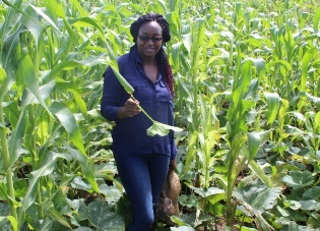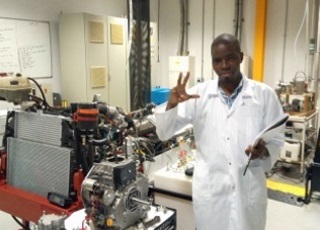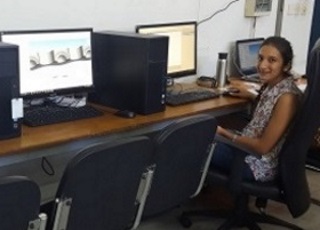Links to external sources may no longer work as intended. The content may not represent the latest thinking in this area or the Society’s current position on the topic.
UNESCO World Science Day for Peace and Development 2018
The UNESCO World Science Day for Peace and Development, celebrated on 10 November each year, has four objectives:
- Strengthen public awareness on the role of science for peaceful and sustainable societies
- Promote national and international solidarity for shared science between countries
- Renew national and international commitment for the use of science for the benefit of societies
- Draw attention to the challenges faced by science and raising support for the scientific endeavour
The Royal Society-DFID Africa Capacity Building Initiative (ACBI) supports 10 five-year collaborative projects through a consortia-based approach. The projects comprise UK- and Africa-based scientists researching key issues of development in low-income countries: soil science, renewable energy and water and sanitation.
Each grant funds PhD students, research costs, travel, training, and equipment. The 10 grants support 30 African partners who are based across 18 sub-Saharan African countries in almost 30 different institutions. The Royal Society-DFID Africa Capacity Building Initiative is funded with UK aid from the UK government.
On the 2018 World Science Day for Peace and Development, three ACBI PhD students have given their perspectives on how their work contributes towards local, national and international peace and development.
Working with local people
Opio Miria, an ACBI PhD student working on converting locally available biomass resources into an alternative to diesel fuel for electricity generation at Makerere University, Uganda, highlights the need for researchers to engage local communities with novel science aiming to improve their quality of life. He says: "It is a necessity since most of their livelihood and cultural beliefs are tied around biomass resources such as forests."
These thoughts are echoed by Diksha Juggurnath at the University of Mauritius, who is working on developing a system to reduce the cost and increase the efficiency of solar power generation. Diksha notes that, with over 600 million people in Africa living without a stable electricity supply and hundreds of thousands of deaths attributed to air pollution, there is an urgent need to integrate new clean power generation systems into the lives of people across the continent.
Another researcher who recognises the benefit of working alongside local communities to benefit science is Belinda Kapembwa, from the Zambia Agricultural Research Institute, who studies the bioavailability of heavy metals to key crops grown in Zambia. Belinda engages with the community in the area she studies by chairing community meetings and inviting local people to contribute towards some of the field work.
By working alongside local communities, researchers are able to fully understand development challenges on a local scale and therefore are able to ensure that interventions fully address the concerns of those most affected.
International impact
Diksha’s work has the potential to have an impact on lives throughout sub-Saharan Africa. By improving the availability of electrical power, many of the key Sustainable Development Goals can be achieved including improving gender equality, reducing global hunger and improving access to education.
She notes: "Access to electricity will not only improve the standard of living in Africa but will also help in eradicating poverty, enhance the level of education and promote development."
Opio’s research also focuses on improving access to a stable supply of electricity, with the added benefit of reducing reliance on imported fossil fuel and the associated resource wars. By generating power on a local scale, more peaceful communities can be sustained.
Belinda’s work contributes towards peace and development on a local and international scale. Her work aims to improve farming policy which has frequently neglected to provide adequate support to improve food quality in sub-Saharan Africa.
She says: "Food safety and micronutrition have not been fundamentally prioritised in most of Africa’s farming systems which has contributed to widespread 'hidden hunger'." Improving the nutritional value of crops reduces poverty and hunger in the region, and allows produce to be exported to international markets who have strict nutritional controls on imported crops.
Global outlook
It is through the work of scientists such as Opio, Diksha and Belinda that some of society’s most pressing development challenges can be tackled. Large international groups of researchers allow ideas to be exchanged across borders and for the most qualified people to work on solutions to the most difficult problems.
Science has to have a global outlook to achieve sustainable peace and development.
The three early career scientists profiled here have messages to the world on the 2018 World Science Day for Peace and Development:

"Just as the world population has multiplied over the years, so has its problems, but science enables us to develop new technologies necessary for a safe, secure and comfortable life and is key to solving problems. I therefore urge society to support science even more now than before."
Belinda Kapembwa, Zambia Agricultural Institute, Zambia

"There is a need for more funding to increase collaboration which is crucial in addressing the scarcity of experts as well as funding for development of local infrastructure of existing geographical science clusters, a means for transforming and spreading scientific solutions to meet the people at the point of their greatest need."
Opio Miria, Makerere University, Uganda

"The professionals and scientists will not be able to build a better world alone. The local community has to share its problems and the complications it is facing, its expectations and the possible solutions, and contribute their knowledge and practices to the accomplishment of the particular goal."
Diksha Juggurnath, University of Mauritius, Mauritius
